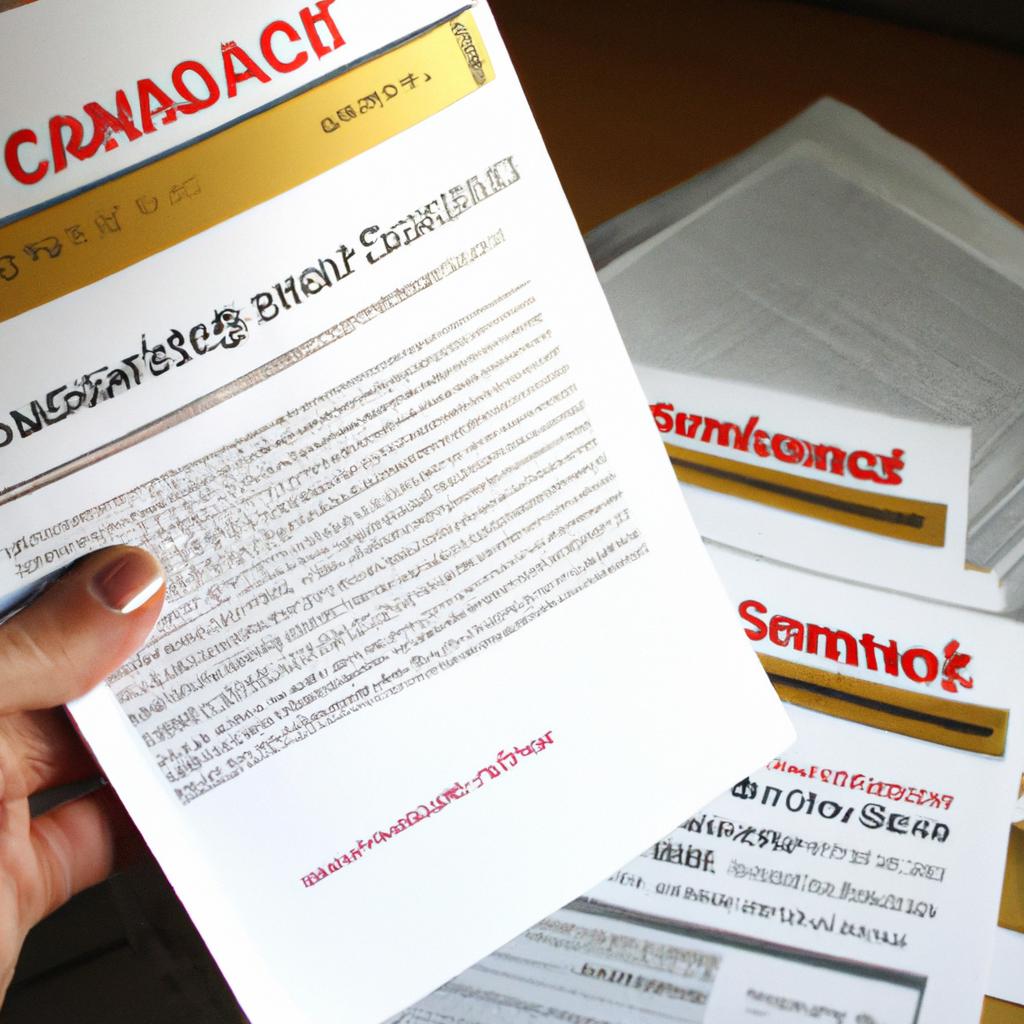Lobbying regulation is a critical aspect of political governance, ensuring transparency and accountability within democratic systems. The Pennsylvania Reform Party has been at the forefront of lobbying reform efforts in the state, aiming to address concerns regarding campaign finance practices. To better understand the landscape of lobbying regulation in Pennsylvania, it is essential to examine its historical context, current challenges, and potential solutions.
One example that highlights the significance of lobbying regulation in Pennsylvania involves a hypothetical case study wherein a corporation extensively lobbies lawmakers to secure favorable legislation that promotes their products. Without proper regulations in place, this scenario could potentially lead to an uneven playing field where corporate interests supersede public welfare considerations. As such, understanding the intricacies of campaign finance laws becomes crucial for upholding ethical standards and safeguarding democracy. This article explores the overarching framework governing lobbying activities in Pennsylvania while shedding light on key issues surrounding campaign finance reform within the state’s Reform Party. By examining these aspects, we can gain insights into how lobbying regulations impact electoral processes and shape policy outcomes in Pennsylvania’s political landscape.
Overview of Lobbying Regulation in Pennsylvania
One example that highlights the importance of lobbying regulation in Pennsylvania is the case of a major pharmaceutical company seeking to influence legislation on prescription drug pricing. Through extensive lobbying efforts, this company was able to secure favorable policies that allowed them to maintain high prices for their medications, resulting in increased costs for consumers and limited access to affordable healthcare.
To address such concerns and ensure transparency and accountability, Pennsylvania has implemented robust lobbying regulations. These regulations aim to regulate the activities of lobbyists by requiring them to register with the state and disclose information about their clients, expenditures, and contacts made with public officials. By doing so, these regulations provide valuable insights into the nature and extent of corporate influence on policy-making processes.
The impact of lobbying regulation in Pennsylvania can be summarized as follows:
- Increased transparency: Lobbying regulations require detailed disclosure of financial contributions from special interest groups, enabling citizens to understand who is attempting to sway political decisions.
- Enhanced accountability: By mandating registration and reporting requirements for lobbyists, Pennsylvania’s regulations hold individuals accountable for their actions while engaging with policymakers.
- Mitigation of corruption risks: The implementation of strict rules surrounding lobbying helps prevent potential abuses of power or bribery attempts by ensuring there are clear guidelines governing interactions between lobbyists and public officials.
- Strengthened democracy: Lobbying regulation promotes fairness within the political process by providing equal opportunities for all interested parties to voice their concerns rather than favoring those with greater financial resources or connections.
| Transparency | Accountability | Corruption Risk Mitigation |
|---|---|---|
| Provides a clearer understanding | Holds individuals responsible | Establishes clear guidelines |
| Identifies influential interests | Ensures ethical behavior | Prevents abuse of power |
| Promotes fair decision-making | Strengthens democratic values | Fosters equality |
In light of these considerations, it becomes evident that regulating lobbying practices plays a crucial role in preserving the integrity of Pennsylvania’s political system. The ensuing section will delve into key issues surrounding lobbying reform to further explore ways to enhance transparency and accountability within the state’s policymaking processes.
Key Issues in Lobbying Reform
Having discussed the overview of lobbying regulation in Pennsylvania, we now turn our attention to key issues that have emerged within this domain. To gain a deeper understanding, let us consider an example scenario involving a hypothetical corporation seeking favorable legislation through extensive lobbying efforts.
One pressing concern regarding lobbying reform is the potential for conflicts of interest among lawmakers who receive campaign contributions from lobbyists or their affiliated organizations. This practice raises questions about whether legislative decisions are truly driven by public interest or influenced by financial incentives. For instance, imagine Corporation X contributing substantial sums to a legislator’s election campaign and subsequently witnessing favorable policy outcomes aligned with their interests. Such incidents undermine transparency and accountability within the political system.
To shed further light on the challenges faced in lobbying reform, we present a bullet point list highlighting some common concerns:
- Influence imbalance between well-funded special interest groups and grassroots advocacy.
- Lack of stringent disclosure requirements for lobbyist-client relationships.
- Inadequate enforcement mechanisms to prevent unethical practices.
- Limited accessibility of relevant information pertaining to lobbying activities.
Table: Examples of Influential Interest Groups
| Interest Group | Financial Contributions | Policy Impact |
|---|---|---|
| Corporation A | $1 million | Substantial |
| Union B | $500,000 | Moderate |
| Environmental NGO C | $200,000 | Minimal |
| Trade Association D | $750,000 | Significant |
The table above illustrates how varying amounts of financial contributions can affect policy impact. It highlights the unequal footing upon which different interest groups operate when engaging in lobbying activities.
In consideration of these concerns and imbalances, it is crucial to address them through comprehensive lobbying reform. By doing so, Pennsylvania can strive towards a more transparent and accountable political landscape that genuinely represents the interests of its citizens.
Understanding the existing challenges in lobbying regulation lays the foundation for examining current lobbying laws in Pennsylvania. It is imperative to assess how these regulations fare in addressing key issues and whether they require further improvement to ensure fairness and integrity within the system.
Current Lobbying Laws in Pennsylvania
Having explored the key issues in lobbying reform, we now turn our attention to understanding the current lobbying laws in Pennsylvania. To illustrate the practical implications of these regulations, let us consider a hypothetical case study involving Company X, a large pharmaceutical corporation operating within the state.
Case Study Example:
Company X is seeking to influence legislation regarding drug pricing and regulation. They hire several influential lobbyists who are well-connected with policymakers in Harrisburg. These lobbyists engage in extensive efforts to sway legislators’ opinions through campaign contributions, private meetings, and persuasive arguments highlighting the potential economic benefits for the state.
Paragraph 1:
The existing lobbying laws in Pennsylvania aim to strike a delicate balance between protecting democratic processes and ensuring transparency in political activities. Some of the key features include:
- Registration Requirements: Lobbyists must register with the Pennsylvania Department of State before engaging in any lobbying activities. This includes disclosing their names, clients they represent, compensation received, and specific legislative or administrative interests.
- Reporting Obligations: Lobbyists are required to file regular reports detailing expenditures made on behalf of their clients related to influencing public officials.
- Contribution Restrictions: Specific limits exist on campaign contributions made by lobbyists or entities employing them.
- Gift Regulations: There are restrictions imposed on gifts that can be given by lobbyists or those employing them to public officials.
Paragraph 2:
To further grasp the intricacies of lobbying regulations in Pennsylvania, it is helpful to examine how different interest groups have adhered (or failed) to comply with these rules. The table below provides an overview of four prominent cases where violations were identified:
| Interest Group | Violation | Penalty |
|---|---|---|
| Pharma Association | Failure to report | Fine $10,000 |
| Environmental NGO | Unregistered | Cease-and-desist order |
| Labor Union | Excessive gifting | Probation |
| Tech Startup | Unauthorized PAC | Warning |
This table reflects the diversity of regulatory breaches encountered and highlights the importance of robust enforcement mechanisms to maintain accountability within lobbying practices.
Paragraph 3:
While Pennsylvania has implemented legislation to regulate lobbying activities, challenges in enforcing these regulations persist. In the subsequent section, we will explore some of these obstacles and discuss potential strategies for addressing them effectively. By understanding both the current laws in place and the hurdles faced in their implementation, policymakers can work towards creating a more transparent and accountable political environment that safeguards democratic decision-making processes.
Challenges in Enforcing Lobbying Regulations
H2: Challenges in Enforcing Lobbying Regulations
Despite the existence of lobbying laws in Pennsylvania, enforcing these regulations has posed significant challenges. One prominent example that highlights these difficulties is the case of a major pharmaceutical company attempting to influence legislation related to drug pricing. This hypothetical scenario sheds light on the complex nature of enforcing lobbying regulations and showcases some of the hurdles faced by regulatory bodies.
To better understand the obstacles involved in enforcing lobbying regulations, several key factors must be considered:
-
Legal loopholes: The existing lobbying laws may contain certain loopholes or ambiguities that can be exploited by lobbyists, allowing them to bypass disclosure requirements or other restrictions. These loopholes create opportunities for undue influence and undermine transparency within the political process.
-
Inadequate enforcement mechanisms: Even when lobbying violations are identified, ineffective enforcement mechanisms hinder proper regulation. Limited resources allocated to monitoring and investigation make it challenging for regulatory agencies to proactively identify potential breaches. Moreover, penalties imposed for non-compliance may not serve as sufficient deterrents, further undermining the effectiveness of enforcement efforts.
-
Complex network of interests: Lobbying activities often involve multiple stakeholders with diverse interests. Determining whether an individual or organization qualifies as a lobbyist can be subjective, especially when considering indirect forms of influence such as third-party advocacy groups or think tanks. Identifying and regulating all parties involved becomes particularly intricate due to intertwined relationships among various interest groups.
-
Political resistance: Resistance from powerful interest groups can impede effective implementation and enforcement of lobbying regulations. In some instances, influential entities may seek to protect their own interests by exerting pressure on lawmakers or regulatory bodies responsible for overseeing compliance with lobbying rules.
These challenges highlight the need for comprehensive reforms aimed at strengthening lobbying regulations in Pennsylvania. By addressing these issues head-on, policymakers can enhance transparency and accountability within the state’s political landscape while ensuring fair representation for all citizens.
Building upon an understanding of the challenges faced in enforcing lobbying regulations, it is crucial to consider proposed reforms that can address these shortcomings.
Proposed Reforms for Lobbying in Pennsylvania
Challenges in Enforcing Lobbying Regulations: A Case Study
To illustrate the challenges faced in enforcing lobbying regulations, let us consider a hypothetical scenario. Imagine a prominent pharmaceutical company seeking to gain favor with policymakers by influencing legislation related to drug pricing and regulation. This company hires several well-connected lobbyists who engage in extensive efforts to shape public opinion, establish relationships with key decision-makers, and sway policy outcomes in their favor.
Despite existing regulations aimed at ensuring transparency and accountability in lobbying activities, enforcement poses significant hurdles. The following factors contribute to the difficulties encountered:
-
Complexity of Lobbying Networks: Lobbying efforts often involve intricate networks composed of various actors such as lobbyists, interest groups, lawmakers, and even government officials themselves. These complex interactions can make it challenging for regulatory bodies to trace the full extent of influence exerted and ensure compliance with reporting requirements.
-
Limited Resources for Oversight: Regulatory agencies responsible for monitoring lobbying activities may face resource constraints that hinder effective oversight. Inadequate staffing levels or insufficient funding allocations can compromise their ability to thoroughly investigate potential violations or verify accuracy in disclosed information.
-
Legal Ambiguities: Ambiguous language within lobbying laws can create loopholes that allow certain forms of influence peddling to go unnoticed or unpunished. Vague definitions or exemptions may enable individuals or organizations to operate outside the scope of regulatory scrutiny while still exerting considerable influence on policymaking processes.
-
Revolving Door Phenomenon: The revolving door phenomenon refers to the movement between government positions and private sector roles for individuals involved in policymaking decisions. This creates concerns regarding conflicts of interest and raises questions about undue influence when former policymakers transition into lobbying positions where they leverage their prior connections and knowledge.
These challenges present formidable obstacles to effectively regulate lobbying practices and maintain transparency within political systems. Addressing these issues requires comprehensive reforms that prioritize robust oversight mechanisms, enhanced reporting procedures, strengthened legal frameworks, and measures targeting conflicts of interest.
Table: Challenges in Enforcing Lobbying Regulations
| Challenge | Explanation |
|---|---|
| Complexity of lobbying networks | Intricate interactions between various stakeholders make it difficult to track influence networks. |
| Limited resources for oversight | Insufficient staffing or funding hampers regulatory agencies’ ability to monitor lobbying activities. |
| Legal ambiguities | Ambiguous language within laws allows for loopholes and potential non-compliance with regulations. |
| Revolving door phenomenon | Movement between government and private sector roles creates concerns about conflicts of interest. |
With these challenges in mind, the subsequent section will explore proposed reforms aimed at strengthening lobbying regulations in Pennsylvania and addressing the identified issues. Understanding the impact of lobbying on political accountability is crucial for developing effective strategies that promote transparency and integrity within democratic systems.
Impact of Lobbying on Political Accountability
Proposed Reforms for Lobbying in Pennsylvania: Enhancing Transparency and Accountability
To illustrate the potential impact of lobbying on political accountability, let’s consider a hypothetical scenario involving a large corporation seeking to influence policy decisions. Company XYZ, a major player in the energy sector, has been actively engaging in lobbying efforts to shape legislation related to renewable energy subsidies. By analyzing this case study, we can better understand why reform measures are necessary to ensure transparency and fairness in lobbying practices.
Efforts to regulate lobbying have gained momentum across various states, including Pennsylvania. In response to concerns over the disproportionate influence of special interest groups on policymaking processes, several reforms have been proposed that aim to enhance transparency and accountability:
-
Strengthen Disclosure Requirements: One key proposal is to tighten disclosure requirements for lobbyists by mandating more detailed reporting of their activities and expenditures. This would include information such as the amount spent on lobbying efforts, the issues being advocated for or against, and any financial contributions made towards political campaigns.
-
Implement Cooling-Off Periods: Another suggested reform is the introduction of cooling-off periods for lawmakers transitioning into lobbyist roles after leaving public office. These periods would restrict former government officials from immediately engaging in lobbying activities related to their previous responsibilities, aiming to prevent undue influence resulting from revolving door practices.
-
Enforce Penalties for Noncompliance: To deter noncompliance with lobbying regulations, proponents argue for stricter penalties imposed on individuals or organizations found guilty of violating these laws. This could involve fines proportional to the severity of violations or even criminal charges in cases of deliberate misrepresentation or bribery attempts.
-
Establish an Independent Ethics Commission: A recurring proposition involves creating an independent ethics commission responsible for overseeing lobbying activities and enforcing compliance with established rules and regulations. Such commissions would ideally be composed of impartial experts who can objectively assess complaints and investigate potential conflicts of interest.
These proposed reforms seek to address existing loopholes within current lobbying regulations, aiming to curb the potential influence of special interest groups and ensure a more transparent and accountable political environment. By implementing these measures, Pennsylvania can take significant steps towards safeguarding democratic principles and restoring public trust in its policymaking processes.
| Proposed Reforms for Lobbying in Pennsylvania |
|---|
| Strengthen Disclosure Requirements |
| Implement Cooling-Off Periods |
| Enforce Penalties for Noncompliance |
| Establish an Independent Ethics Commission |
In conclusion, as demonstrated by the case study involving Company XYZ’s lobbying efforts, there is a clear need for reform in Pennsylvania’s lobbying regulations. The proposed reforms discussed above offer concrete solutions to enhance transparency, accountability, and fairness within the state’s political landscape. By taking decisive action on these proposals, policymakers can help restore confidence in the integrity of the decision-making process and strengthen democratic governance overall.




